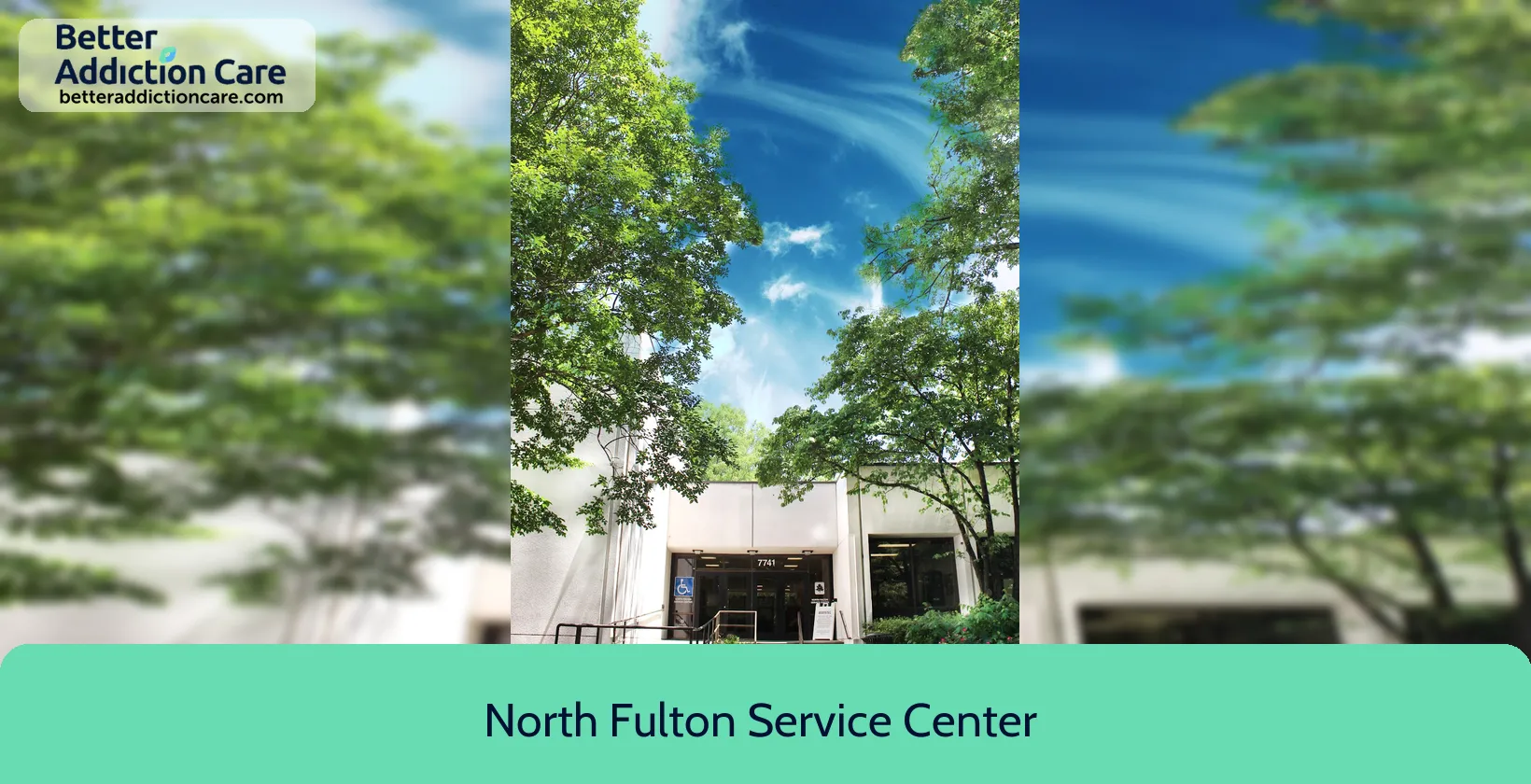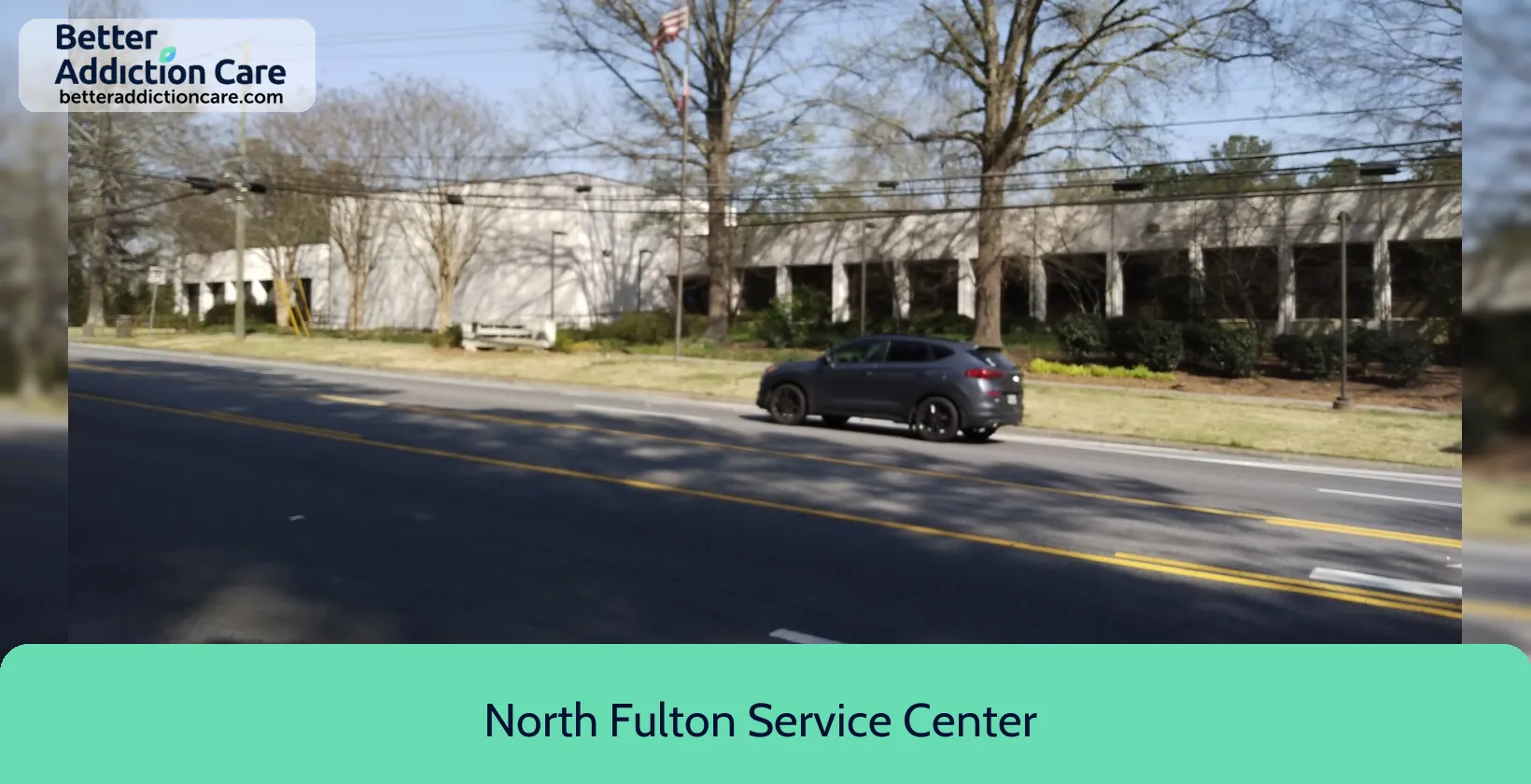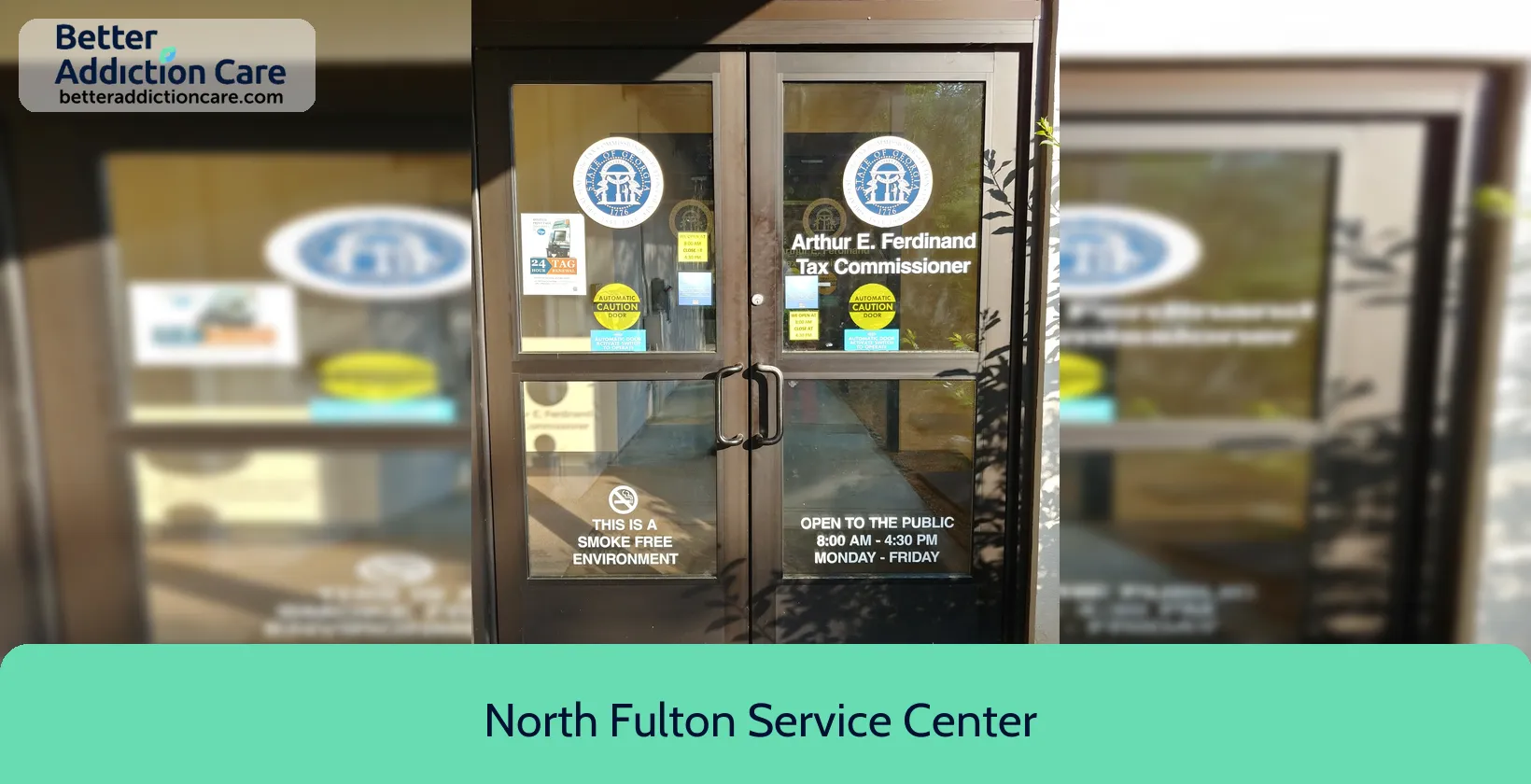North Fulton Service Center - Adult Behavioral Health Services
Overview
North Fulton Service Center - Adult Behavioral Health Services is a mental health treatment center for people seeking treatment near Fulton County. As part of their treatment modalities for recovery, North Fulton Service Center - Adult Behavioral Health Services provides couples/family therapy, cognitive behavioral therapy, and dialectical behavior therapy during treatment. North Fulton Service Center - Adult Behavioral Health Services is located in Atlanta, Georgia, accepting cash or self-payment for treatment.
North Fulton Service Center - Adult Behavioral Health Services at a Glance
Payment Options
- Cash or self-payment
- Medicaid
- Medicare
- State-financed health insurance plan other than Medicaid
- Private health insurance
Assessments
- Screening for tobacco use
- Comprehensive mental health assessment
- Comprehensive substance use assessment
Age Groups
- Seniors or older adults
- Young adults
- Children/adolescents
- Adults
- Seniors
Ancillary Services
- Case management service
- Court-ordered outpatient treatment
Highlights About North Fulton Service Center - Adult Behavioral Health Services
6.62/10
With an overall rating of 6.62/10, this facility has following balanced range of services. Alcohol Rehabilitation: 8.00/10, Drug Rehab and Detox: 6.00/10, Insurance and Payments: 6.00/10, Treatment Options: 6.49/10.-
Alcohol Rehabilitation 8.00
-
Treatment Options 6.49
-
Drug Rehab and Detox 6.00
-
Insurance and Payments 6.00
Treatment At North Fulton Service Center - Adult Behavioral Health Services
Treatment Conditions
- Alcoholism
- Mental health treatment
- Substance use treatment
- Co-occurring Disorders
Care Levels
- Outpatient
Treatment Modalities
- Couples/family therapy
- Cognitive behavioral therapy
- Dialectical behavior therapy
- Telemedicine/telehealth therapy
- Abnormal involuntary movement scale
Ancillary Services
Languages
- Sign language services for the deaf and hard of hearing
- Spanish
Additional Services
- Pharmacotherapies administered during treatment
- TB screening
Special Programs
- Clients with co-occurring mental and substance use disorders
- Veterans
- Active duty military
- Members of military families
- Criminal justice (other than DUI/DWI)/Forensic clients
Get Help Now
Common Questions About North Fulton Service Center - Adult Behavioral Health Services
Contact Information
Other Facilities in Atlanta

6.62

6.96

6.71

6.74

6.92

6.62

7.00

6.75
DISCLAIMER: The facility name, logo and brand are the property and registered trademarks of GPA Treatment, and are being used for identification and informational purposes only. Use of these names, logos and brands shall not imply endorsement. BetterAddictionCare.com is not affiliated with or sponsored by GPA Treatment.



